5 Smart Ways to Save Pool Water in Singapore
(Pool Maintenance Tips)

Why Save Water in Singapore?
Singapore may be surrounded by water, but it’s a nation with no natural freshwater lakes or pool resources, relying instead on imported water and advanced treatment systems to meet its daily needs.
In such a water-scarce environment, owning and maintaining a swimming pool comes with a unique responsibility, to use water wisely and sustainably. As more Singaporeans embrace eco-friendly living, sustainable pool maintenance is no longer just a trend; it’s a crucial step towards reducing water wastage, lowering energy use, and protecting the environment.
Whether you manage a private pool or a condominium facility, adopting green pool care practices ensures you can enjoy a clean, healthy pool without compromising Singapore’s precious water supply.
Tip 1: Do Regular Pool Maintenance
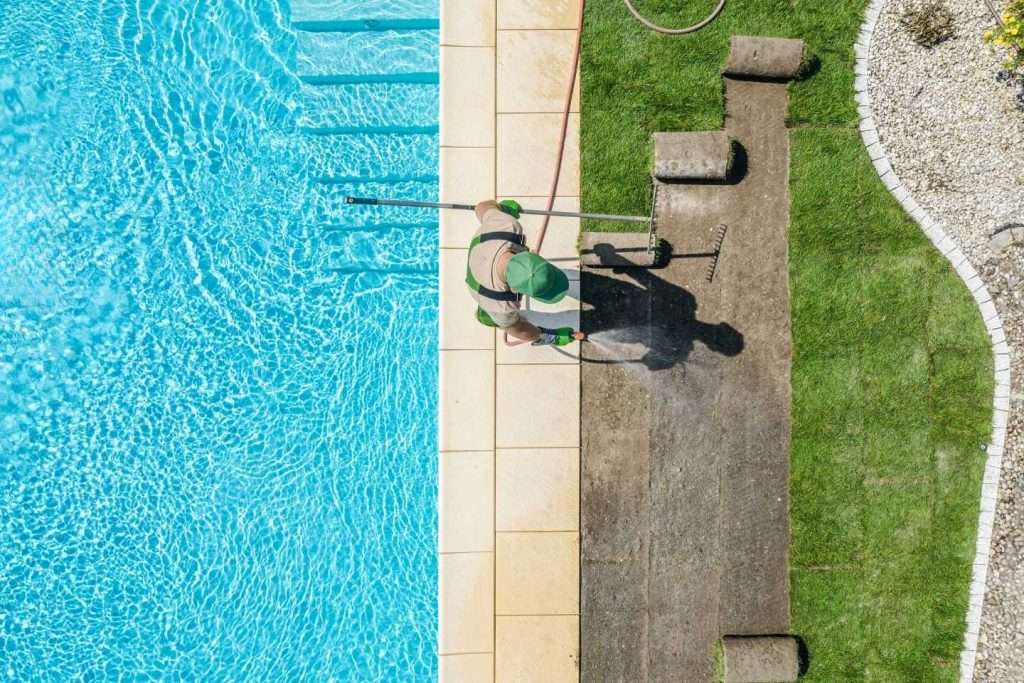
Preventing problems is far more effective than fixing them. Routine pool maintenance keeps your system running efficiently and minimises the need for draining or refilling, both major causes of water wastage.
Maintain Balanced Water Chemistry
Testing and balancing your pool water isn’t just about cleanliness, it’s about water longevity. Imbalanced chemistry can lead to algae, cloudy water, and scaling, forcing you to replace large volumes of water. With Singapore’s high humidity and consistent rainfall, pH fluctuations happen faster than in dry climates. Test your water at least twice a week using a pool testing kit, and maintain:
- pH: 7.2 – 7.6
- Chlorine: 1 – 3 ppm
This balance reduces chemical waste, prevents bacteria buildup, and helps your water stay usable for months without the need for draining.
Inspect and Repair Leaks Early
A small leak can waste thousands of litres per month, even more in larger residential or condominium pools. Check for:
- Damp soil around your pool’s edges,
- Unexpectedly fast drops in water levels,
- Air bubbles in your pump system.
In Singapore’s wet-dry cycles, soil movement can stress pool structures, causing micro-cracks. Engage a licensed pool contractor to conduct annual leak detection, especially before the monsoon season.
Skim Pool Regularly
Instead of relying on excessive backwashing or draining to remove debris, use a skimmer to clean the surface regularly. This helps to reduce the frequency of backwashing cleaning which wastes large amounts of water.
Tip 2: Choose High-Efficiency Pool Equipment
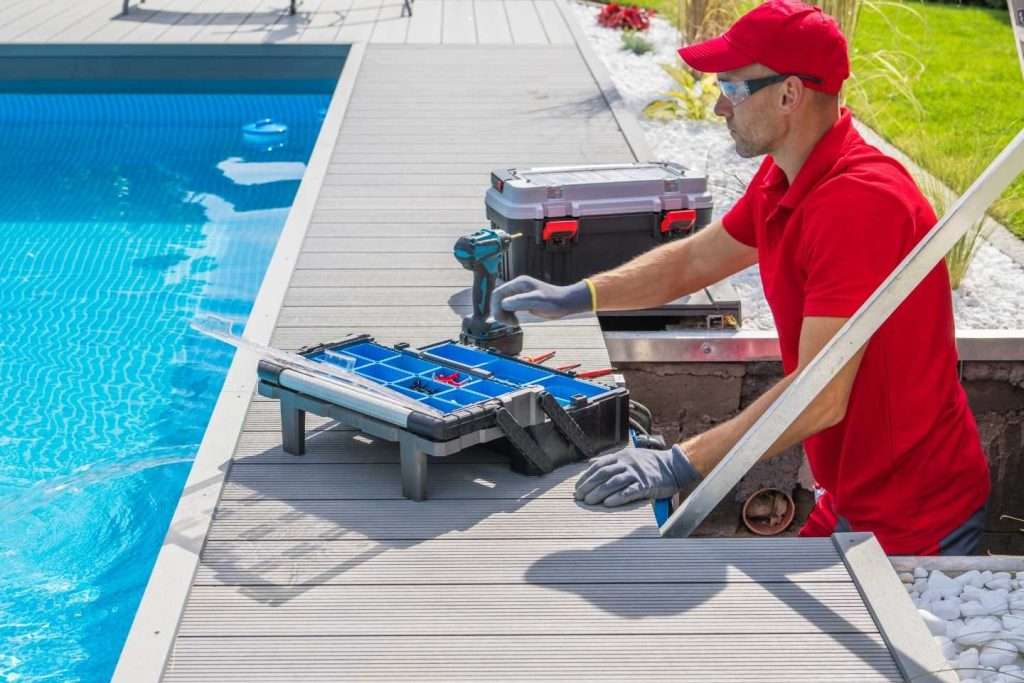
Energy-efficient pool systems not only save electricity but also help maintain optimal water circulation, preventing unnecessary backwashing or water overflow.
Energy-Efficient Pool Pumps
Modern pool pumps with inverter or eco-motor technology use up to 70% less energy while providing consistent water flow. This helps maintain chemical balance and reduces the need for additional water treatments. Look for energy-efficient pool pumps in Singapore for verified performance and lower operational costs.
Variable-Speed Pumps
Unlike traditional single-speed models, variable-speed pumps allow you to control circulation rates. You can run them slower during cooler periods or at night, cutting energy use and reducing water turbulence that accelerates evaporation.
High-Efficiency Filtration Systems
Pool filters that are too small or outdated force your system to overwork. Instead, invest in cartridge or sand filters sized correctly for your pool. Newer models require less backwashing, saving thousands of litres annually. Use rainwater top-ups collected via your home’s drainage system to replace minimal evaporative loss, a sustainable practice that’s gaining popularity among eco-conscious homeowners in Singapore.
Tip 3: Reusing Pool Water Safely and Responsibly
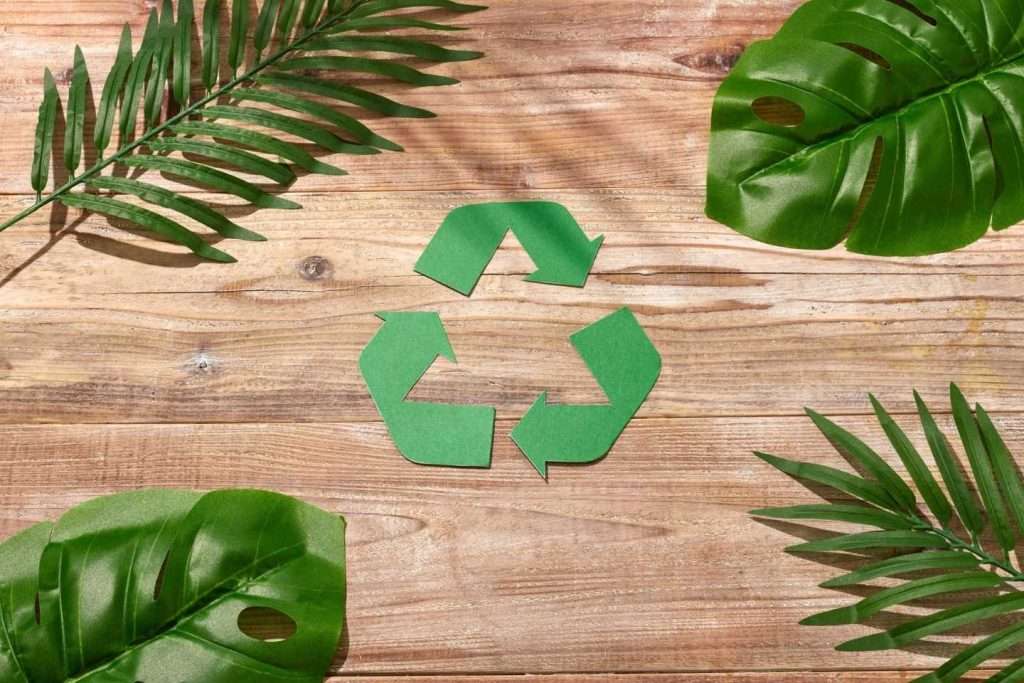
Reusing pool water is a sustainable way to save water, but it must be done carefully to protect your plants and comply with local guidelines.
Use for Gardening (After Dechlorination)
Before watering your garden or lawn, ensure that chlorine levels have dropped to safe levels (<0.1 ppm). Let the water stand for 48–72 hours, or use a neutralising agent to remove chlorine. Always test a small patch before large-scale watering.
Partner for Community Water Reuse
If you manage a condominium or commercial pool, consider liaising with PUB or your town council to repurpose filtered pool water for landscape irrigation or cleaning common areas.
Tip 4: Invest in Pool Covers
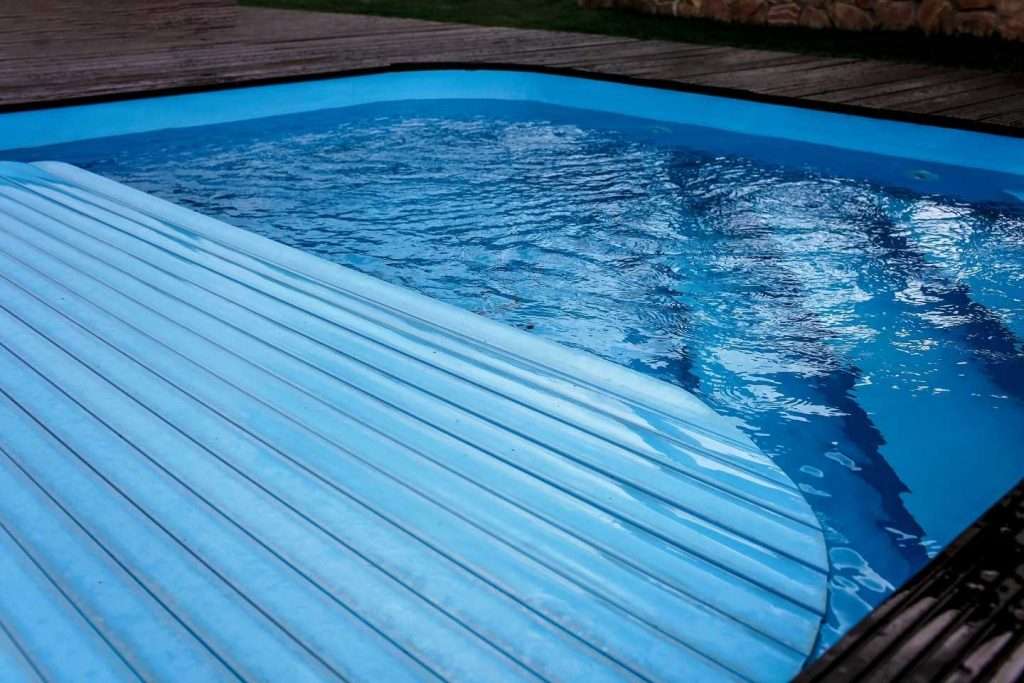
Types of Pool Covers
Type | Benefits | Best For |
Solar Covers | Retain heat and minimise evaporation | Residential pools |
Mesh Covers | Block debris, allow rainwater through | Outdoor pools under trees |
Automatic Retractable Covers | Easy to use, sleek design | Luxury homes and condominiums |
Smart usage habits includes:
- Always cover your pool after use, especially between 10 a.m. and 4 p.m., when evaporation peaks.
- Clean your cover weekly to prevent algae growth and prolong lifespan.
- For long-term efficiency, choose a UV-resistant material suited for Singapore’s climate.
Tip 5: Plant Poolside Greenery
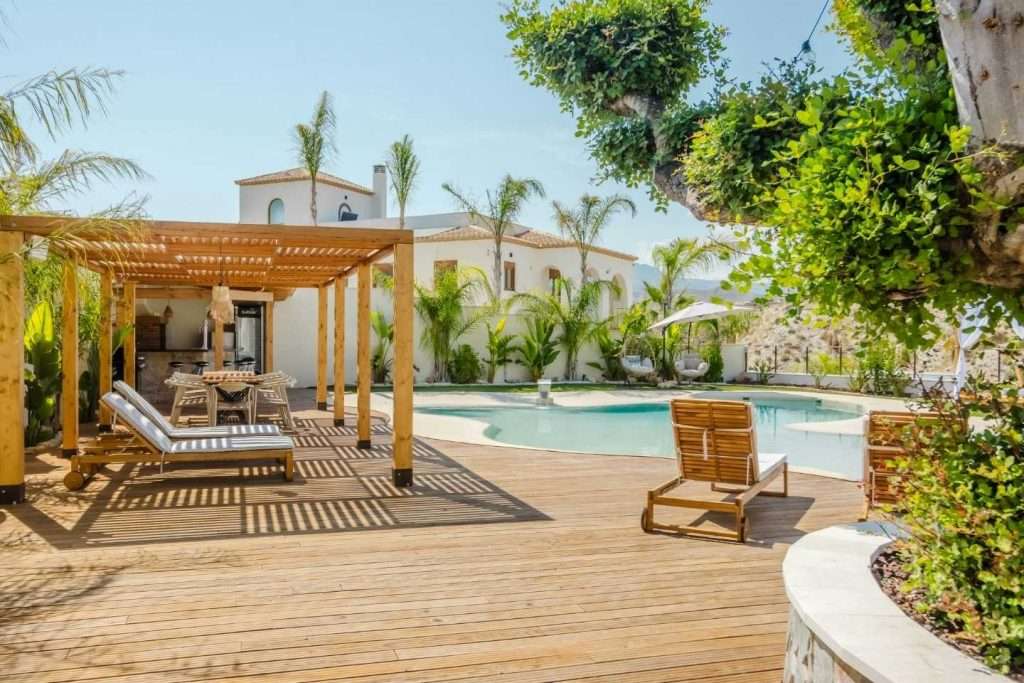
Planting trees or shrubs around the pool can provide natural shade, which helps to reduce water evaporation and maintain cooler water temperatures. Opt for native plants that thrive in Singapore’s climate to reduce the need for additional watering.
Final Thoughts
Sustainable pool ownership in Singapore goes beyond maintenance, it’s about adopting smarter habits, investing in efficient systems, and making environmentally conscious choices.
By combining regular maintenance, smart equipment upgrades, consistent pool cover usage, and landscaping planning, you can:
- Cut water wastage
- Lower monthly maintenance costs,
- Extend your pool’s lifespan, and
- Support PUB’s: “Water for Every One. Everyone for Water.” vision.
Taking these steps ensures your pool remains an oasis of relaxation, without draining your wallet or the planet’s resources.
Here’s a related comprehensive pool maintenance checklist to ensure that your pool is always in pristine condition.
If you need any assistance in maintaining your pool, contact us Watercraft Engineering and we will be happy to help.
